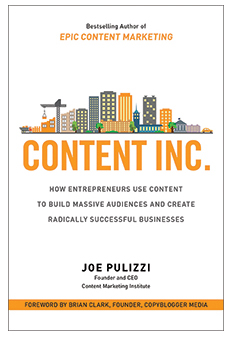
Written By: TMSA Staff | Jul 14, 2020 12:00:00 AM
Think about the last time you felt pressure from a salesperson. It could have been when you were shopping for a mattress a month ago or the last time you bought a car. Or maybe it was that random cold call you received from a telemarketer in the middle of the day last week at work.
I’m guessing if you felt pressure, it wasn’t a “good” feeling at all. Instead, I expect you wanted to get out of the room (or off the phone) as quickly as possible.
Did you feel like the salesperson was going into “hard sell” mode at some point? Often times, hard sell and pressure are synonymous. Here’s how Merriam-Webster defines it: “aggressive high-pressure salesmanship.”
If you’re at a point in a sales call where you have to kick into a hard sell, your selling system has failed, and you’ve just become desperate. In fact, “hard sell” typically means “no sale!”
Let’s break down WHY pressure entered the sales conversation:
Each of these made-up scenarios – and many other real-life situations – is based on YOU and not your prospect. Remember, prospects buy for THEIR reasons, not yours. If you’re in high-pressure, hard sell mode, it means you’re trying to force the sale.
If a prospect is going to buy from you, it’s because they have pain and you have the cure for that pain. If you have the cure, it shouldn’t take high pressure or hard selling. When you ask the right questions and uncover your prospect’s pain, they will lead you right to what they need. No hard sell needed.
When you genuinely care about the prospect’s problem, when you truly want to help them resolve their pain, the hard sell is unnecessary. If you care about the prospect, you’ll stop trying to “convince” them of YOUR reasons why he should buy, and instead you’ll help him discover why they are having problems and how you/your product/your service can address those problems.
The other word that tends to come into play when a hard sell is involved is the word “price” and it is usually suggested it is too high. Particularly in transportation and logistics, everyone thinks the sale is focused on the price.
Let me ask you a question, when someone contacts you out of the blue and asks you how much it is to haul something for them, how do you answer them? Do you give them pricing? If so, who is creating price pressure, you or the buyer? Are there things that ideally you would like to know from that buyer that could influence what price you are willing to give them? Like, is this a one-time deal to backup their normal supplier or is there a possibility of a reoccurring delivery schedule? Wouldn’t that influence how sharp of a number you are willing to give.
When we focus on price, we are perceived to be in the hard sell mode. We have to slow down ask some questions and put ourselves in a different more favorable light.
If you are frustrated with being in pricing battles, reach out to learn more about our approach. Please contact me, Ken Guest, at Ken.Guest@sandler.com, or 330-929-9449.
Tags: Sales

By Joe Pulizzi, founder of the Content Marketing Institute Joe Pulizzi will be the Opening Keynote Speaker at the upcoming TMSA Marketing & Sales Leadership Conference June 5-7 in Fort Lauderdale. He...

"I'm looking completely differently at how my company goes to market and interacts with customers." "I'd like to be much more transparent with customers and prospects on how we do things. For...

With today’s fragmented communication and marketing channels, and complete control resting in the hands of the consumer, companies are forced to rethink their go-to-market strategies. Joe Pulizzi,...